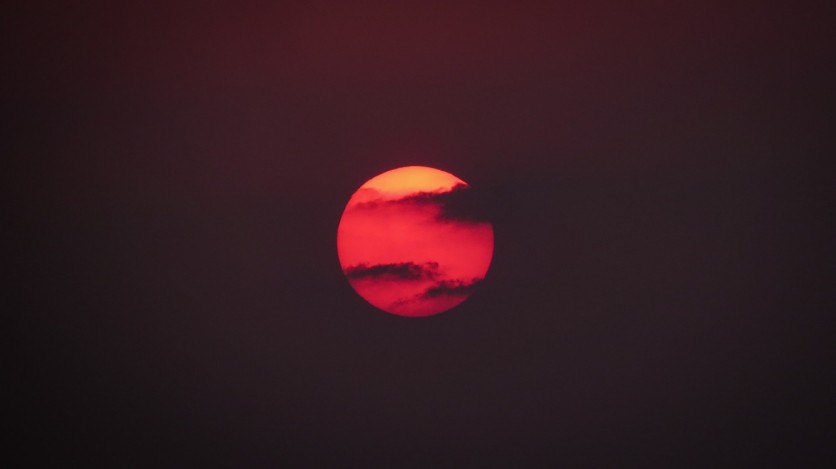The final Lunar Eclipse of 2022 is arriving this November, and the public is up for a treat in their night space watching for this astronomical event unfolding soon.
The Beaver Moon is what astronomers name for the full Moon coming during November, but it also coincides with the Blood Moon, a total Lunar Eclipse that is waiting to happen in a few short days. It may not be the last full Moon of the year, but it is the second and last Lunar Eclipse waiting to happen for 2022, and the last chance to spot it in the night sky.
Final Lunar Eclipse of 2022: Blood Moon and Beaver Full Moon

NASA announced that the Beaver Moon is coming this Tuesday, November 8, and delivering the full look at the lunar rock and capturing its entirety present in the night sky. However, the only issue now is that it coincides with a lunar eclipse called the Blood Moon, and it will take the cover of the Earth's shadow having a reddish glow.
The Beaver Moon is also known as the Snow Moon or Frosty Moon, especially with its white appearance in the skies.
It will start to emerge this coming Sunday, November 6, and will be available in the skies for three days until Wednesday, November 9.
Read Also : Japan's Commercial Moon Launch to Overlap With NASA's Artemis Mission; Will This Create Conflict?
Best Times to Watch the Blood Moon Lunar Eclipse
On the other hand, it comes with a catch on this Lunar show, as while it is closest to the Earth by November 8's peak, it would also be the time for the Blood Moon to appear. The last Total Lunar Eclipse of 2022, and lunar eclipses in general, is taking place from November 7 to November 8, available for all parts of the world to see.
According to Time and Space, Its peak would be at around 0800 UTC, which is 1 AM PST and 3 AM Central Time respectively.
The Moon and its Study
The last Lunar Eclipse of 2022 is finally coming, and it will be the final chance to see the natural satellite in a different light, especially as it takes the cover of the Earth's shadow from the Sun's light. The first Lunar Eclipse this year took place from May 15 to 16, and brought a reddish look for the satellite and went dark through the night.
Eclipses are a great time to watch astronomical events unfold in the night sky as it is clear and rid of the Moon's light to glare on the horizon, allowing people to spot more heavenly bodies.
NASA and other global space agencies also keep tabs on the lunar rock for its many discoveries and points to study, especially as there is a lot to discover on it, with modern space missions. One of the missions from NASA includes a lunar flashlight that would help shed a light on dark parts and look into the Moon's water and ice.
While NASA is gearing up to bring light to the space rock, the Moon will temporarily hide in the cover of the Earth's shadow and bring the last chance for humans to see it in a different sight. The Blood Moon is coinciding with November's Beaver Moon, with its dates intertwining with each other for more to see on the night sky.
Related Article : Watch NASA's Livestream as Artemis 1 Returns to Launch Pad
This article is owned by TechTimes
Written by Isaiah Richard

![Apple Watch Series 10 [GPS 42mm]](https://d.techtimes.com/en/full/453899/apple-watch-series-10-gps-42mm.jpg?w=184&h=103&f=9fb3c2ea2db928c663d1d2eadbcb3e52)


